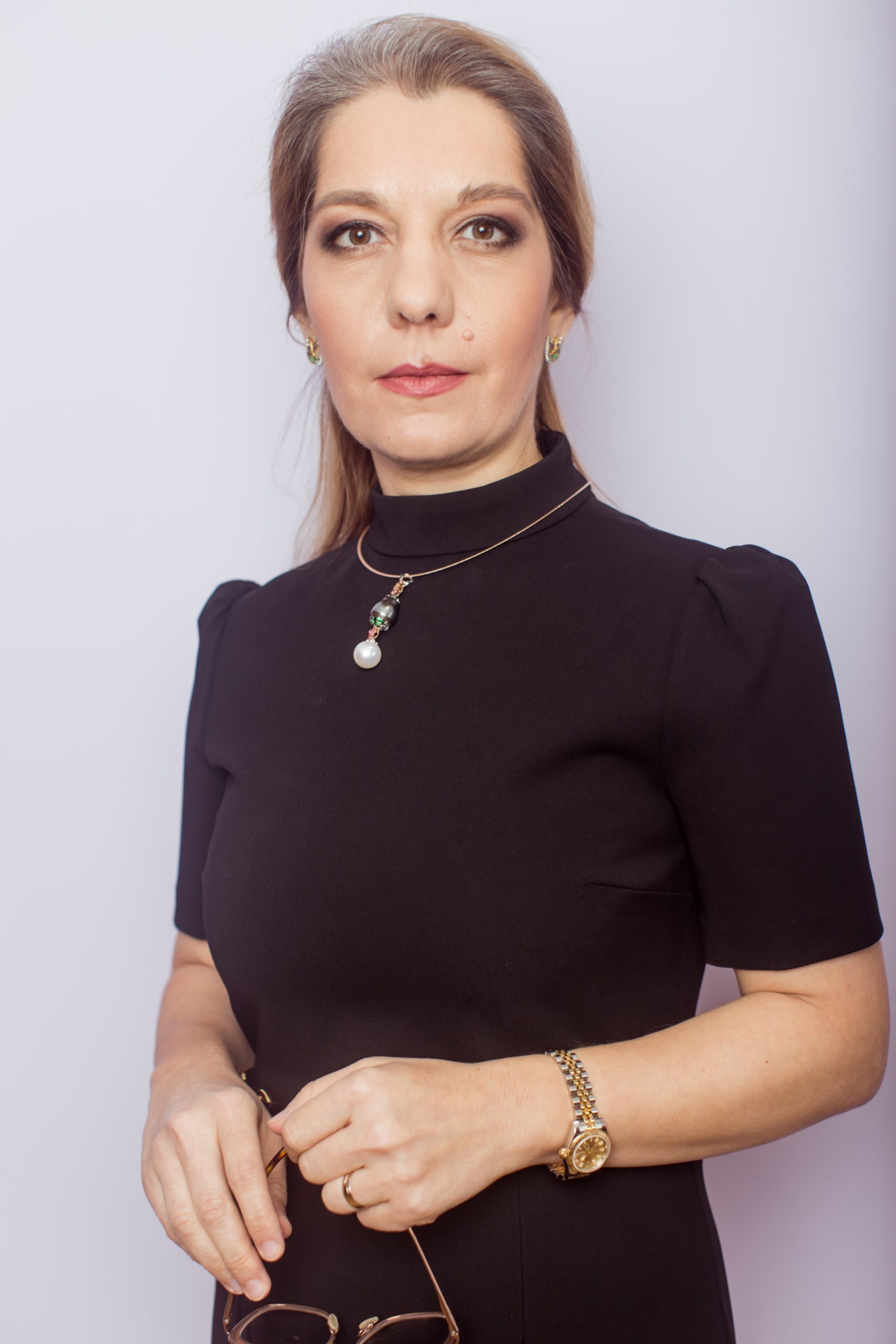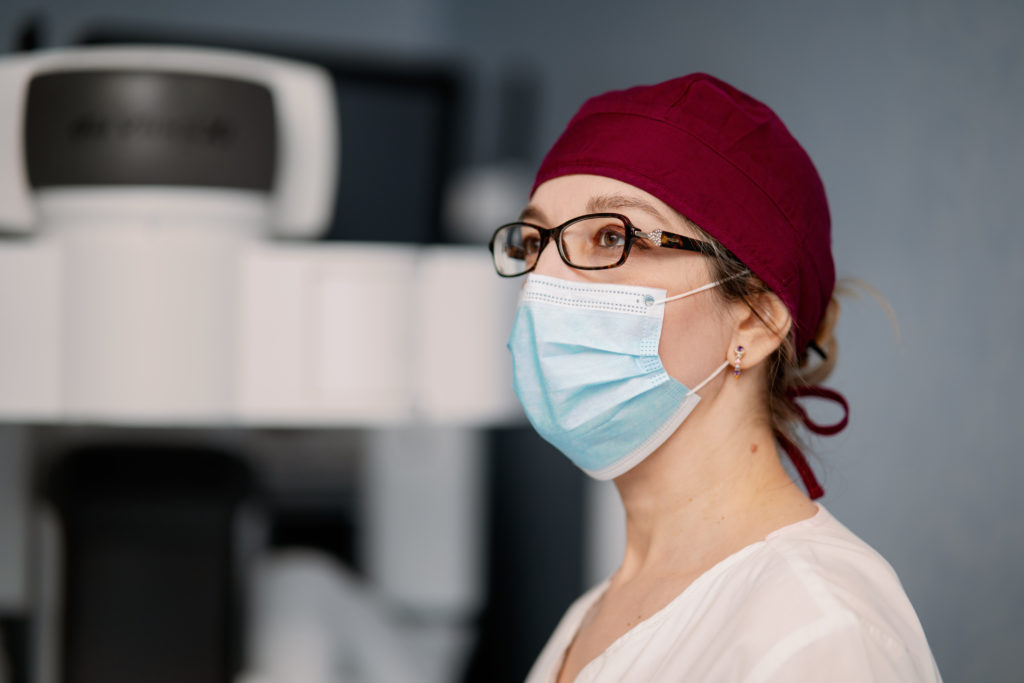“The responsibility of choosing a medical decision belongs equally to the doctor, but also to patients” Prof Dr Elvira Bratila
We continue our interviews series with Prof Dr Elvira Bratila, endometriosis specialist, founder of the Endomedicare Academy, an integrated centre for the diagnosis and treatment of endometriosis and a training centre as well. Prof Dr Elvira Bratila is a consultant gynaecologist with special interest in laparoscopic surgery, robotic surgery, endometriosis and assisted human reproduction. She also pays a high interest to onco-gynecology having performed for the first time in the country a surgery for cervical cancer via keyhole only. She wrote numerous medical articles and she is the president of various medical societies including endometriosis.
Endometriosis is a frequent condition and yet underdiagnosed worldwide. What are the reasons for this?
Prof Dr E. Bratila. Despite efforts to increase the level of awareness and constant information that has been made about this disease in recent years, endometriosis remains an under-diagnosed disease. The diagnosis can sometimes take between 5-10 years. The main cause of underdiagnosis is an insufficient knowledge of the pathology and its peculiarities, among doctors, which delays the diagnosis, first of all, by not recognizing that endometriosis can be located elsewhere than the ovary. Endometriosis lesions can appear on the ligaments of the uterus, intestines, bladder, peritoneum, not so obvious on clinical or ultrasound examination. Knowing and developing in time a deep knowledge of the pathology, gaining experience in surgery for complex cases of deep endometriosis, a specialist and knowledgeable pathologist can tell the location of the lesions after the clinical and ultrasound examination of the patient, thus being able to provide a correct and timely therapeutic course. By delaying the diagnosis, the patient can waste time and important steps, especially when it comes to patients who want to get pregnant.
For patients planning wishing to conceive, the surgeon’s key question will always be: when to do the surgery and how much of the disease can be removed?
How is endometriosis diagnosed and what are the clinical signs of the disease?
Prof Dr E. Bratila. The most common clinical sign for which the patient presents to the doctor is the pelvic pain manifested cyclically, which seems a natural pain at first sight. Pelvic pain usually occurs before or during menstruation. Some women may experience pain during intercourse, defecation, or urination.Sometimes endometriosis is asymptomatic and can be discovered during surgery or when the woman tries to conceive and undertakes various tests to discover the causes of infertility.
Regarding the diagnosis, endometriosis can be diagnosed by correlating the clinical data with those provided by imaging. The gynecologist is the one who evaluates and coordinates this evaluation. Deep endometriosis is more difficult to diagnose, being a mix between clinical data, gynecological examination, patient symptoms and imaging data: ultrasound examination, MRI with endometriosis protocol, colonoscopy, endorectal ultrasound, investigations suggested by clinical examination and symptoms. As the treatment is individualized, so is the diagnostic management based on what information the clinical examination provides.
Endometriosis can be located in the ovaries as well. What is the impact of the surgery on the ovarian reserve and how should the operation be performed to reduce the impact?
Prof Dr E. Bratila. For patients planning wishing to conceive, the surgeon’s key question will always be: when to do the surgery and how much of the disease can be removed? The big challenge is: complete excision of endometriosis lesions, without affecting the ovarian reserve. Following the surgery we will follow: restoration of the tubo-ovarian anatomy, excision of superficial peritoneal lesions of endometriosis, excision of ovarian endometrioma with minimal damage to ovarian tissue, excision of deep endometriosis lesions – lesions of the utero-sacral ligaments, rectum, lesions that can obstruct the ureter, bladder endometriosis, etc. For women of reproductive age, the primary objective will be to preserve or improve fertility, and the decisions that the surgeon makes during the operation is essential and decisive for the reproductive future of the patient and the couple.
in endometriosis the principle “you see only what you know and you look only for what you recognise” can be applied.

What is a specialist in the diagnosis and surgery of endometriosis?
Prof Dr E. Bratila. Perhaps more than in any pathology, in endometriosis the principle “you see only what you know and you look only for what you recognise” can be applied. Endometriosis is a pathology in which doctors face every day with new questions, with new scientific arguments, with paradigm shifts. From diagnosis to drug treatment and surgery, the medical process of endometriosis requires a lot of knowledge from gynecologists who investigate, integrate and coordinate multidisciplinary teams, recommending a personalized clinical and therapeutic course, targeting the objectives to ensure pain control, infertility management and quality of life of the patient, before and after surgery. Therefore, I believe that to become a specialist you need a lot of knowledge of pathology, diversified case studies, dedication to each case, a team that understands things similarly and completes your effort. In addition, it takes wisdom, maturity and to know your limits. Surgery is a gesture of responsibility to the patient. It is not at all wrong or shameful, for example, if a surgeon recognizes the endometriosis lesions and cannot excise them, to write all these things in the discharge note, to explain them to the patient and then, if the symptoms persist after the operation, the patient should knows to consult a 2nd or 3rd degree expert, who will ensure the complete excision of deep lesions, in multidisciplinary teams, if necessary.
You certainly know quite well the problems that patients with endometriosis face. What is your message for women with endometriosis but also for the general public?
Prof Dr E. Bratila. Because we talked above about the responsibility of the surgeon, I would like to end by saying that the responsibility of choosing a medical decision belongs equally to the doctor, but also to patients, the first to be able to make their own decisions about their health, through correct, objective information , from reliable and credible sources. These are important decisions that need to be well thought out and weighed, which can influence their health and their reproductive future. This year we received a lot of good news from patients who have undergone complex endometriosis interventions and who have become or are about to become mothers. Therefore, my final message for endometriosis patients is to make their medical decisions carefully and keep their hope alive in the fight against this disease. This is what I do every day, with my team: we stay with them, body and soul, in the fight against the disease, on the road to healing.

